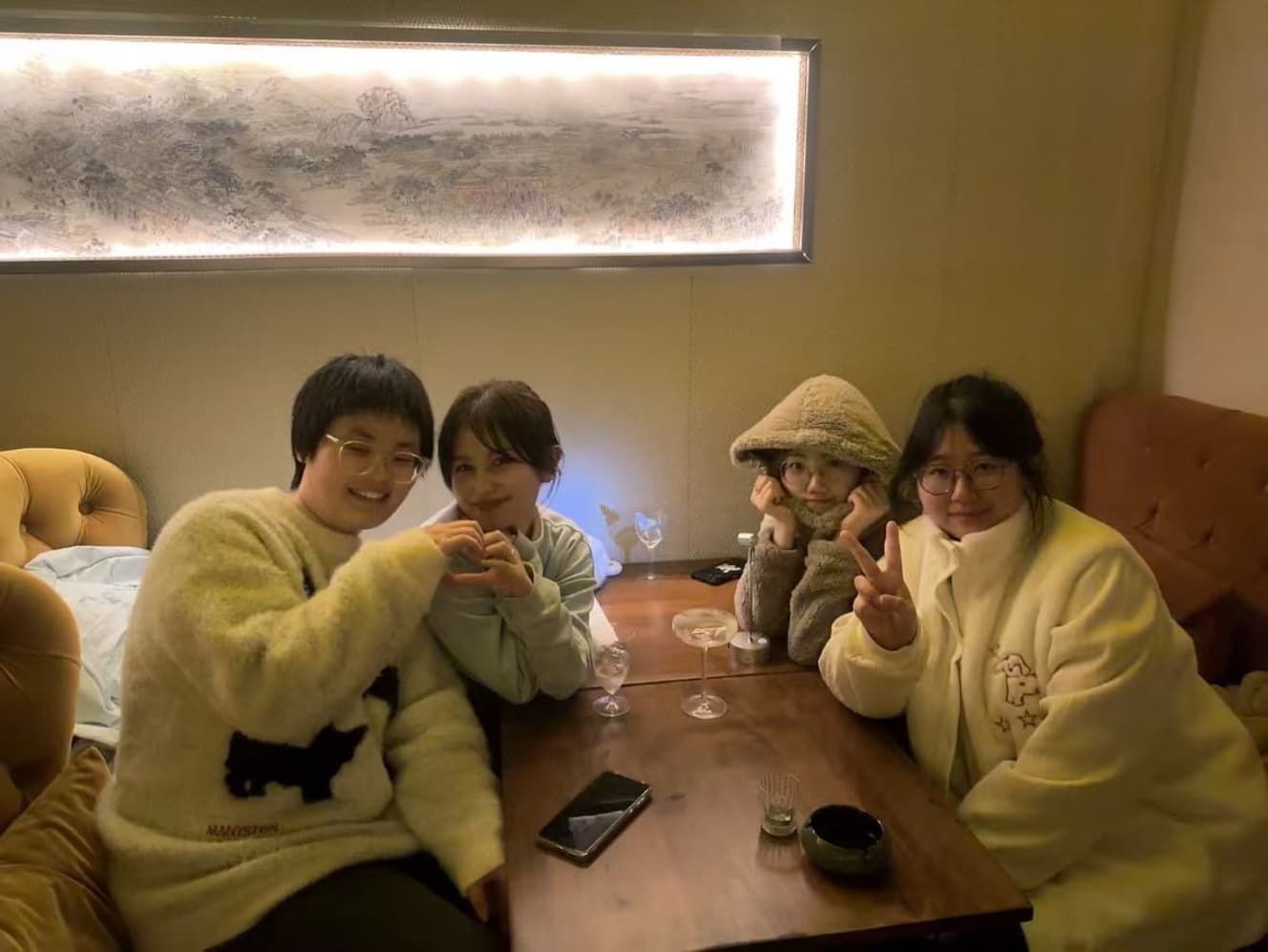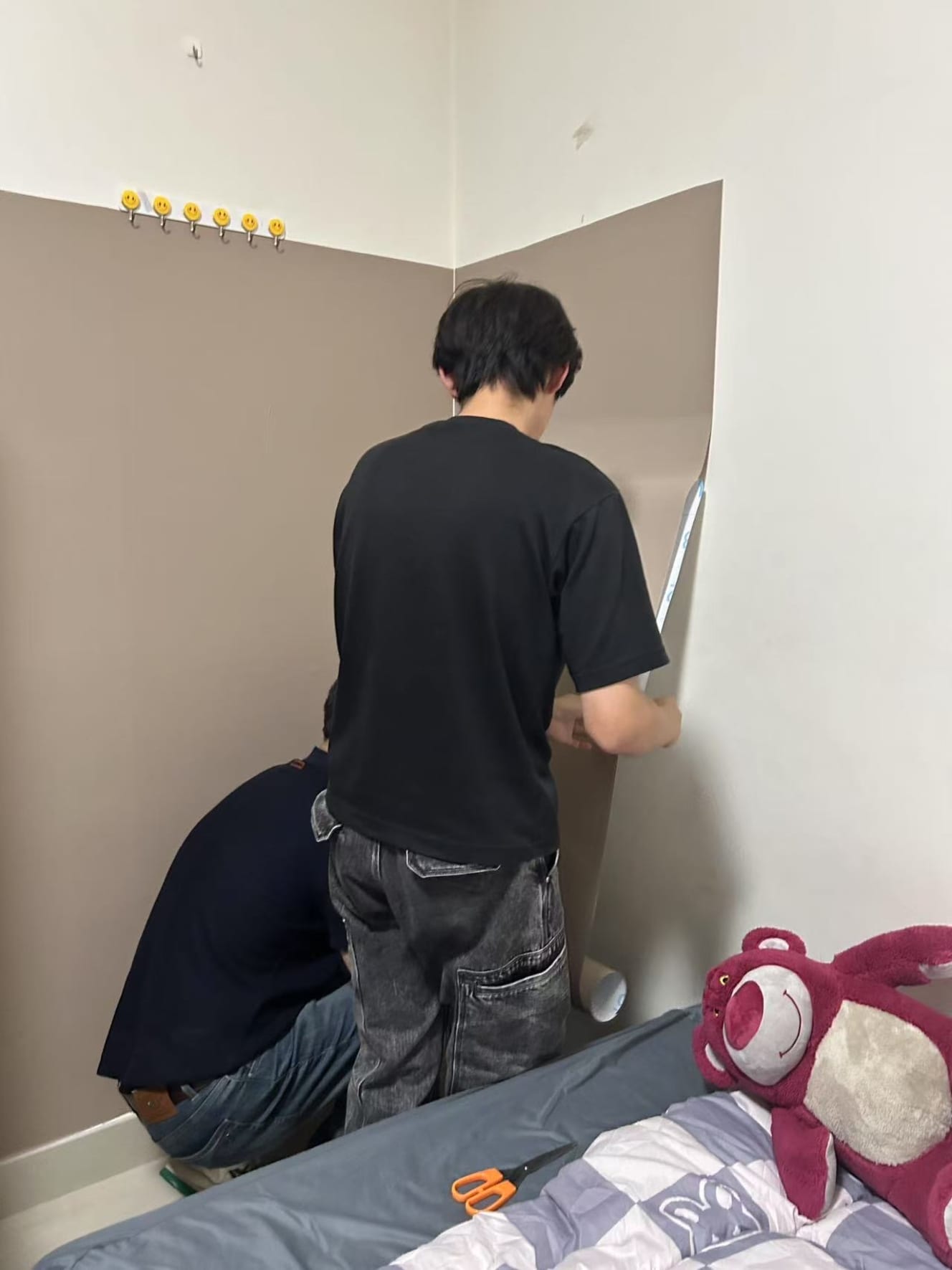Column in series] Why former TV TOKYO announcer Miyu Iketani was told, “May you have a baby soon!
Happy New Year! I look forward to working with you again in the New Year.
I hope everyone had a relaxing New Year’s holiday.
In China, we celebrate the Lunar New Year, so only January 1 is closed for the New Year’s vacation, and from the 2nd, classes and tests are held as usual. However, the inside of the dormitory was decorated in a New Year’s style, and the thoughtfulness of the management company staff warmed my heart.

Surprising “cultural differences
It has already been three months since I came to China. Time has flown by so quickly. I was surprised at the many cultural differences between our two neighboring countries, but I think the thing that gave me the biggest culture shock was the way people treat each other.
The first thing that surprised me was that “Chinese people are basically very close to people. They know the contact information of their friend’s mother, they go out to dinner with their friend’s boss at work, and when they make a friend, they quickly get to know everyone in the community to which that person belongs.
The hurdle to introducing one’s friends, family, and acquaintances to others is also lower than in Japan. I often heard people say, “I enjoyed getting to know you today, so I will introduce you to my friends the next time we meet! I’ll introduce you to my friends next time I see them! When I told them that I was studying Chinese or that I was interested in Chinese culture and history, they were very pleased, and in no time at all, their Wechat (Chinese version of LINE) friend registrations increased.
The sense of closeness is not only between friends, but also between family members. When I greeted my husband’s relatives, who are half Japanese and half Chinese, at their wedding, many of them said to me, “I can’t wait to see our child’s face. The common phrase “早生贵子 (May your child be born soon)” is naturally added to the congratulatory phrase “Congratulations on your marriage.
In Japan, pregnancy and childbirth are matters of personal privacy, and people have different ways of thinking about them. In Japan, pregnancy and childbirth are considered quite sensitive topics, but in China, there seems to be little awareness of such issues.

On the other hand, many of my friends around me say that they will never get married or fall in love in their lives, and that they will never have children because it costs too much money. Moreover, they are all clearly assertive children, so there seems to be a generational difference in their perceptions of marriage and childbirth.
In China, where people are very close to each other, “sociability” is an important skill required for an enjoyable life. The other day, looking back on my life in China, I told a Chinese friend, “In China, I don’t have to wear makeup to work, and I don’t have the stress of thinking I have to be feminine anymore, In China, there is no pressure to be “ feminine,” but there is stress to be sociable.
In China, there are more family gatherings than in Japan, and most people have many opportunities to meet their parents’ friends and business associates from childhood. At birthdays and weddings, it is polite to make a speech, of course, but also to make a toast and have a small conversation with each guest who has gathered. If you can speak wittily at such gatherings, you can make your parents look good.
This may not be a problem for those who are naturally sociable, but for those who are shy, it can be quite stressful. I am not a shy person, but I am actually not very good at talking to new people about myself instead of greeting them, and I am not very good at being attentive to them. Especially in China, you have to be careful because you are talking to someone as a “member of the family” rather than as an individual. I get nervous when I think that if I make a mistake, I will be disgracing my family. However, even when I am nervous, everyone around me is very friendly and accepting, so I have never had any bad feelings.

In addition to “socializing,” I have learned a trick to build good relationships and live comfortably in China. That is “negotiation. For example, in Japan, if there is no seat available at a restaurant when you go out to eat, most people would rather wait quietly.
In China, depending on the location, you can negotiate with the waiter. For example, if a restaurant is understaffed and cannot let a customer through even if a seat is available, you can negotiate by saying, “I will do what I can do, so please let me take a seat. Then, they may let you in. This is not so common in Japan, but in China, this kind of flexibility is possible.
You say it and you win!
In our dormitory, negotiation was the key to a better life. What would you do if there was a problem with the electricity or electrical outlets in the dormitory where you live when you study abroad, or if the walls were dirty, or if the toilets were difficult to use?
I gave up and said, “That’s just the way it is. I thought, “The defects are things that have already been repaired and not fixed, so complaining about them won’t make any difference. I was wrong.


When I told my family about the problems in the dormitory, they negotiated with the dormitory management and gave me permission to put up wallpaper. I talked to the brother at the front desk myself about the problems with the electrical outlets and electricity, and he was able to fix them that day.
In Japan, I always thought that stores and hotels always provide the best possible service, so even if I had a complaint, I would always think that there was some circumstance, or that it probably would not change even if I complained. In China, complaints can be resolved through negotiation, so I have learned that “if something is inconvenient, just say so.
Having come to China, my goal for this year is to adapt to the culture of another country and improve my negotiation skills, while appreciating the beauty of things that were commonplace in Japan.

The paid version of “FRIDAY GOLD” carries the first five installments of “Female Graduate Student Miyu Iketani’s Unusual Study Abroad in Japan”. We will deliver her unusual and real voice, including her reasons for studying abroad in China and the friends she made in China.
Text and photos: Miyu Iketani
